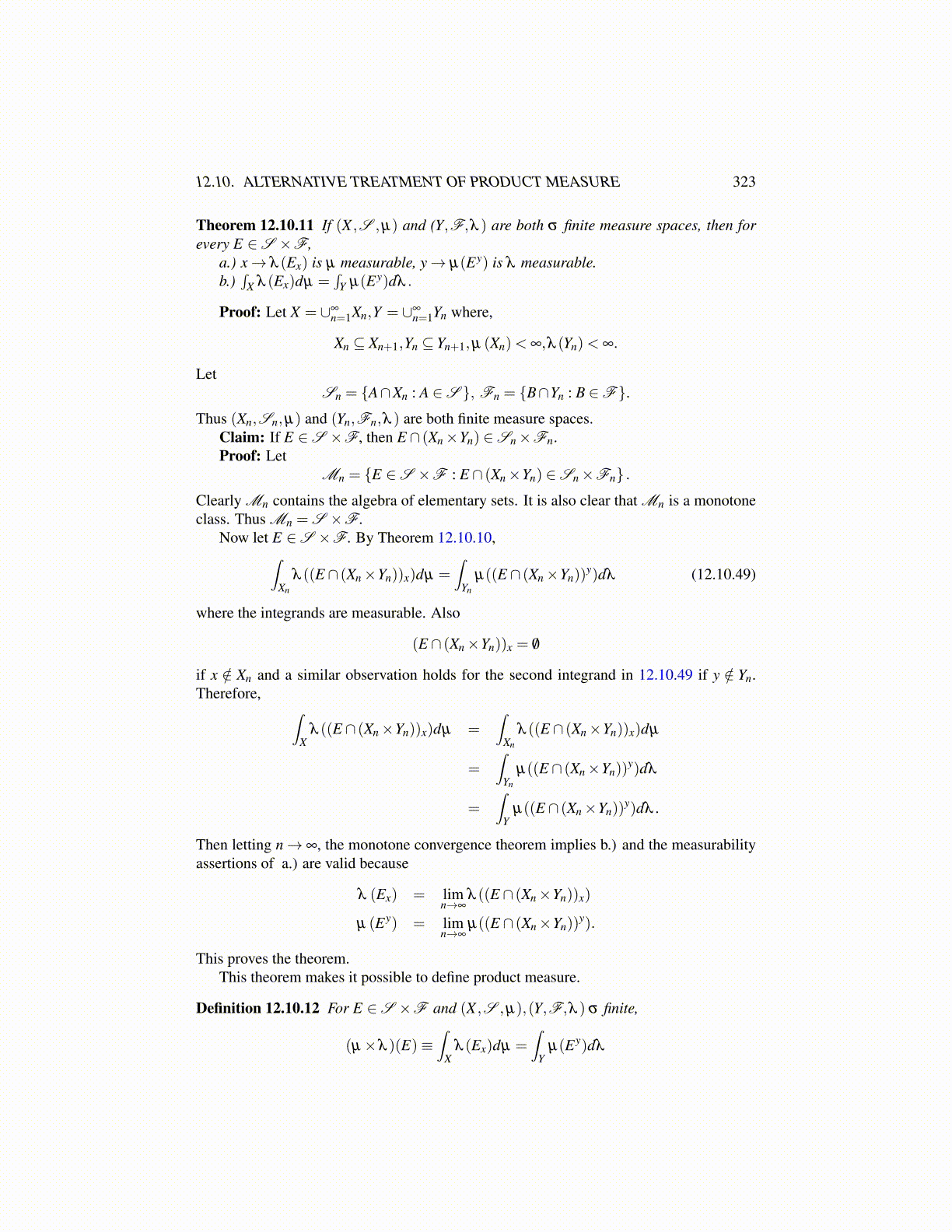
12.10. ALTERNATIVE TREATMENT OF PRODUCT MEASURE 323
Theorem 12.10.11 If (X ,S ,µ) and (Y,F,λ ) are both σ finite measure spaces, then forevery E ∈S ×F,
a.) x→ λ (Ex) is µ measurable, y→ µ(Ey) is λ measurable.b.)∫
X λ (Ex)dµ =∫
Y µ(Ey)dλ .
Proof: Let X = ∪∞n=1Xn,Y = ∪∞
n=1Yn where,
Xn ⊆ Xn+1,Yn ⊆ Yn+1,µ (Xn)< ∞,λ (Yn)< ∞.
LetSn = {A∩Xn : A ∈S }, Fn = {B∩Yn : B ∈F}.
Thus (Xn,Sn,µ) and (Yn,Fn,λ ) are both finite measure spaces.Claim: If E ∈S ×F, then E ∩ (Xn×Yn) ∈Sn×Fn.Proof: Let
Mn = {E ∈S ×F : E ∩ (Xn×Yn) ∈Sn×Fn} .Clearly Mn contains the algebra of elementary sets. It is also clear that Mn is a monotoneclass. Thus Mn = S ×F.
Now let E ∈S ×F. By Theorem 12.10.10,∫Xn
λ ((E ∩ (Xn×Yn))x)dµ =∫
Yn
µ((E ∩ (Xn×Yn))y)dλ (12.10.49)
where the integrands are measurable. Also
(E ∩ (Xn×Yn))x = /0
if x /∈ Xn and a similar observation holds for the second integrand in 12.10.49 if y /∈ Yn.Therefore, ∫
Xλ ((E ∩ (Xn×Yn))x)dµ =
∫Xn
λ ((E ∩ (Xn×Yn))x)dµ
=∫
Yn
µ((E ∩ (Xn×Yn))y)dλ
=∫
Yµ((E ∩ (Xn×Yn))
y)dλ .
Then letting n→ ∞, the monotone convergence theorem implies b.) and the measurabilityassertions of a.) are valid because
λ (Ex) = limn→∞
λ ((E ∩ (Xn×Yn))x)
µ (Ey) = limn→∞
µ((E ∩ (Xn×Yn))y).
This proves the theorem.This theorem makes it possible to define product measure.
Definition 12.10.12 For E ∈S ×F and (X ,S ,µ),(Y,F,λ ) σ finite,
(µ×λ )(E)≡∫
Xλ (Ex)dµ =
∫Y
µ(Ey)dλ